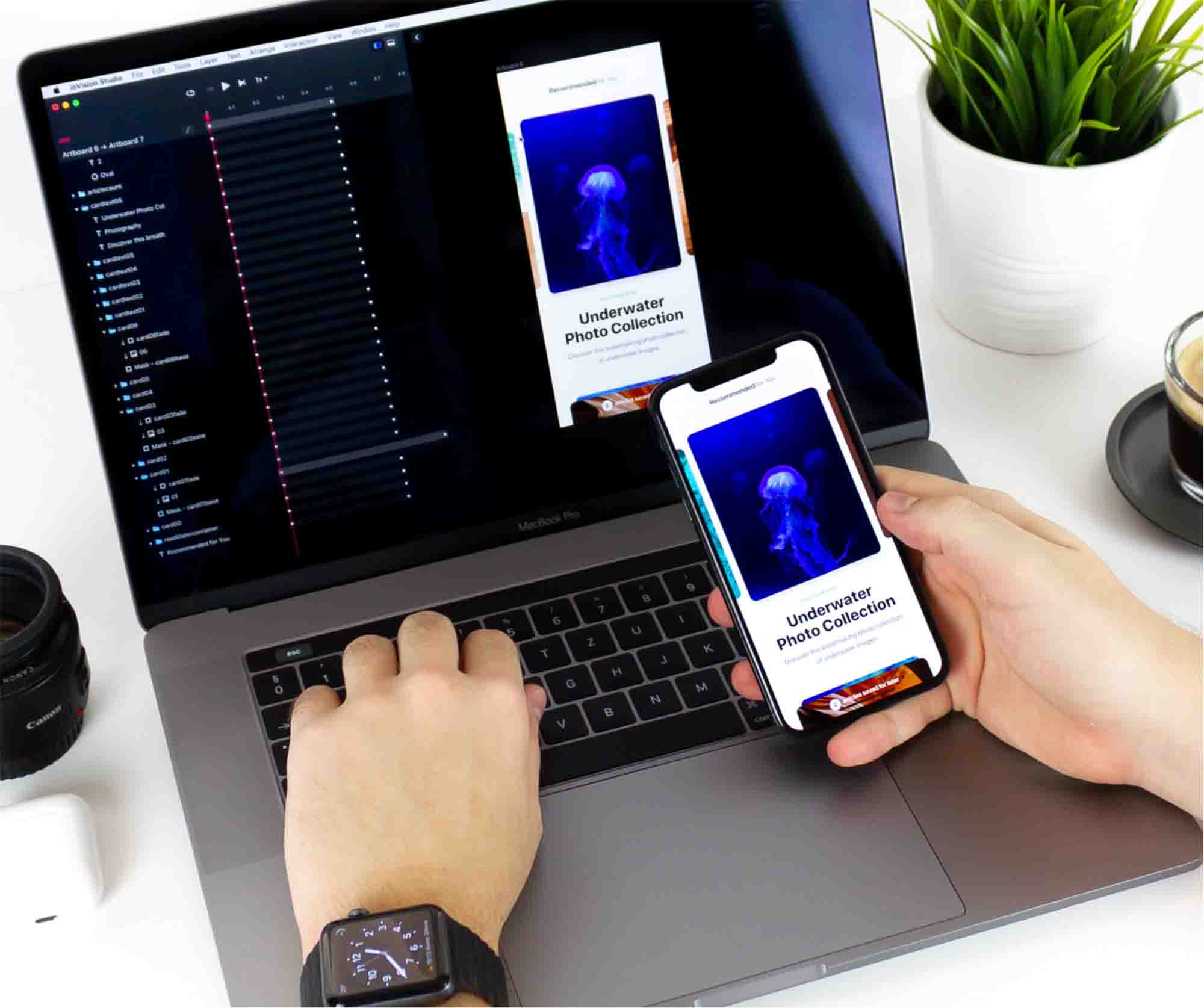Why Flutter Has Become the Best Choice To Develop a Mobile App
May 26, 2021
Flutter is a comprehensive software development kit that offers all the necessary tools to create harmonious cross-platform app development. For leading companies that often run on tight budgets and timelines, Flutter is a great platform to build applications with lower development costs across popular platforms and quickly ship features with an undiminished native experience.
Being a cross-platform app development tool, Flutter offers a cost and time-effective solution whilst enabling developers to achieve high efficiency in the developmental process. Flutter has been enhanced from a mobile application development framework to a portable framework, allowing apps to run on different platforms with little or no change in the codebase.
Flutter’s reputation precedes it. According to Google Trends, Flutter is the second most leading language in 2020. Leading enterprises like Tencent, Alibaba, eBay, and Dream11 among many more have used Flutter to develop their apps in record time. A 2018 Stack Overflow survey found that Flutter is the third most “loved” framework.
Flutter has some desirable features in store. It comprises a rendering engine, command-line tools, fully accessible widgets, and testing and API integration. Flutter has a consistent development model by automatically changing the components of UI when the variables in the code are modified.
Flutter enables developers to monitor improvements and updates in real-time. Apps developed using Flutter can seamlessly function on various interfaces owing to its powerful GPU rendering UI. Flutter houses several IDEs, including Xcode, Android Code, and Visual Studio Code that adds to its versatility.
Reasons Why Flutter Should Be A Go-To For Leading Companies
Conventionally, developers leveraged dedicated and native app development SDKs. However, over the years, the proliferation of unified cross-platform app development SDKs has proved to be dramatically advantageous. The benefits of Flutter’s cross-platform apps have been realized through the enhancement of underlying language and SDK to address the issues that were being encountered in other technologies. Flutter has shown strong benefits in comparison to its alternatives. Following are some of the key elements that make Flutter beneficial for leading companies to go for developing a cross-platform application.
1. Cost-Effectiveness
With its latest updates, Flutter allows for building apps that target mobile, desktop, web, and embedded devices from a single codebase. Flutter enables developers to reuse the native codebase across platforms with minimal changes. This drastically minimizes the cost of testing, QA, maintenance, and overall development.
2. Enhanced Development Process
Flutter functions on native binaries, graphics, and rendering libraries that are based on C/C++. This makes Flutter a great tool for leading companies to create high-performance cross-platform applications with ease. Flutter’s ‘Hot Reload’ feature is a game-changer to hasten the app development process. It allows developers to make changes to the code, and instantly preview them without losing the current application state. Flutter also houses a wide variety of ready-to-use and customizable widgets. These features especially come in handy for leading companies while building a Minimum Viable Product (MVP).
3. Flutter Houses its Own Rendering Engine
Flutter differentiates itself from other platforms with the facility to create many variations with the app. Flutter leverages an internal graphics engine called Skia, which is acclaimed to be fast and well-optimized and also used in Mozilla Firefox, Google Chrome and Sublime Text 3. Skia allows Flutter-based UI to be installed on any platform. Flutter has also managed to accurately recreate Apple Design System elements and Material UI components internally. These widgets help define structural & stylistic elements to the layout without the need to use the native widgets.
Since Flutter uses its own rendering engine, it eliminates the need to change the UI when switching to other platforms. This is one of the key advantages for which leading companies prefer Flutter for app development.
4. Access to Native Features and Advanced SDK’s
Applications built using Flutter are often indistinguishable from the native app and perform exceedingly well in scenarios with complex UI animation. Flutter offers an advanced SDK with simple local codes, third-party integrations, and application APIs. Flutter eliminates the dependence of platform-specific components to render UI by means of a canvas where the elements of the application UI can be populated. The provision to share UI and app logic in Flutter saves time in development without diminishing the performance of the end product. Flutter will indeed be a go-to SDK for mobile applications with advanced UI designs and customizations.
5. Requires Lesser Development Time
The use of a single codebase reduces the multiplicity of codes to develop cross-platform apps. The reduced volume of codes significantly saves time in the developmental process. Flutter offers a variety of ready-to-use, plug-and-play widgets that enable faster customization for apps and eliminates the need for writing codes for each widget. This also mitigates the risk of errors that arise out of a multiplicity of codes. Access to a comprehensive array of widgets allows developers with any skill level to customize applications with innovative design patterns and best practices.
6. Flutter’s Programming Language
Flutter is built upon Dart SDK which promotes powerful architecture and design. Additionally, Dart offers simple management, integration, standardization, and consistency that is found to be better than other cross-platform frameworks.
7. Flutter Applications for Web, Windows, Embedded Devices and More
Flutter has undergone several enhancements that make it a robust tool for developing cross-platform applications. Flutter’s “Hummingbird” project which focuses on developing highly interactive and graphics-rich content for the web, has garnered appreciable traction from developers after Google unveiled a preview of Hummingbird.
While Flutter was conventionally used for Android and iOS app development, the latest version is now providing support for other platforms such as Mac, Windows and Linux. Flutter can even be embedded in cars, TVs, and smart home appliances. Additionally, Microsoft has released contributions to the Flutter engine that support foldable Android devices. Flutter allows easy integration with the Internet of Things (IoT). Flutter, cross-platform app development, offers ready-to-use plugins supported by Google for advanced OS features like fetching GPS coordinates, Bluetooth communication, gathering sensor data, permission handling among many.
Conclusion
- Flutter provides a cost-effective, simplified, and rapid development of cross-platform mobile app while retaining the native design and visual consistency across platforms.
- It is highly desirable to MVPs compatible across different platforms and is leveraged by established enterprises and leading companies alike.
- It is a great choice for leading companies’ apps owing to its efficiency, reliability, and turnkey features that provide an array of widgets.
- Flutter facilitates easy app maintenance and greatly reduces the turnaround time to build applications for multiple platforms.
- Flutter offers a powerful design experience with a large catalogue of custom widgets across platforms that is useful to create a native-like experience whilst befitting the needs of businesses.
- It houses easily accessible equivalent and corresponding features of multiple platforms that relieve even experienced developers from having to learn multiple codes and build applications from scratch.
According to Statista, Flutter is the second most popular cross-platform mobile application development framework used by developers worldwide today and fast becoming THE most popular. Currently, 39% of coders already use Flutter. Leading companies will thus not find it a challenge to hire flutter engineers. Flutter is certainly a force to reckon with for leading companies that look to build efficient and native apps.
Sources: https://joshsoftware.digital/flutter/cross-platform-mobile-application-development-with-flutter/


















